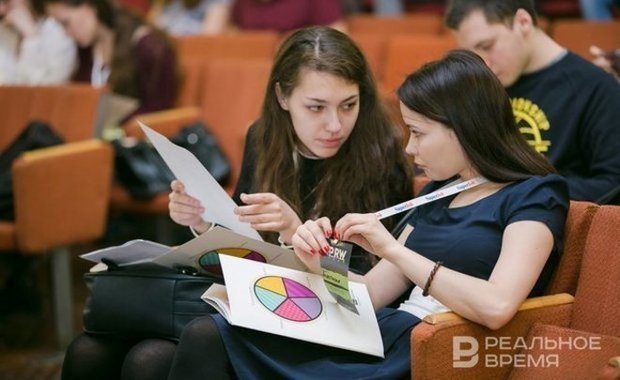Roman Mikhailov: ‘Universities do not always take into account the needs of labour market and the requirements of employers’
The reform of universities will not only train specialists, but also improve the level of education throughout the country

Universities are higher educational institutions that should train high-level specialists for various sectors of the economy and public life. Their main task is to prepare students for professional activity and provide them with the necessary knowledge and skills. However, in recent years, more and more people have expressed the opinion that universities do not perform their function properly and do not prepare students for the realities of modern labour market: many graduates are not ready for professional activity, which leads to low competitiveness in the labour market and hinders the development of the country's economy. Roman Mikhailov, the chairman of the education committee of the New People Party, talks about how to solve these problems and modernise educational institutions in the author's column for Realnoe Vremya.
“Students learn to solve abstract problems”
Why do universities not prepare for professional activity? We propose to consider the reasons for this situation and possible ways to solve the problems.
One of the main reasons for this situation is the lack of relevant training programmes. Many of them were developed decades ago and do not reflect the current requirements of the labour market. Technologies and methods of work change every year, and students should be familiar with the latest achievements and innovations in their field. However, universities often do not have time to update their programmes and include new topics in them.
It is also worth noting that universities do not always take into account the needs of the labour market and the requirements of employers. They do not have sufficient contact with business representatives and do not know what skills and knowledge are in demand in the market. As a result, graduates often find themselves unprepared for the requirements of employers and experience difficulties in finding a job.

Another reason for students' unpreparedness for professional activity is the lack of a practical component in the educational process. Universities focus on theoretical training, leaving negligible space for practice and the acquisition of real work experience. Students learn to solve abstract problems but do not get enough opportunities to apply their knowledge in practice.
It is also worth taking into account the problem that many universities do not pay enough attention to the development of soft skills in their students. Communication skills, such as the ability to communicate effectively, listen and understand others, as well as leadership skills, such as the ability to make decisions, manage a group and motivate people, are important for success in any profession. However, if students do not receive enough practice and feedback in this area during their studies, they may face difficulties in finding a job and moving up the career ladder. Besides, the lack of development of soft skills can lead to insufficient team performance and ineffective communication with colleagues and clients.

“It is necessary to pay attention to the quality of teaching”
It is necessary to take a number of measures to solve these problems.
- Firstly, it is necessary to continuously update the curricula and adapt them to the modern requirements of the labour market. Universities should be flexible and respond quickly to changes in technology and working methods. To do this, it is necessary to create mechanisms that will allow universities to constantly update their programmes and include relevant topics in them.
- Secondly, universities need to improve contact with business representatives and employers. It is necessary to create platforms for communication and cooperation between universities and enterprises. This will allow universities to get information about the requirements of employers and adapt their programmes to these requirements.
- Thirdly, universities should pay more attention to the practical component of education. It is necessary to create conditions for students so that they can apply their knowledge in practice, for example through internships and project work.
In addition to all of the above, it is necessary to pay attention to the quality of teaching. A good teacher is not only someone who has a high level of knowledge, but also someone who knows how to transfer this knowledge to his or her students. Universities should provide their teachers with the necessary tools and resources for effective learning. Besides, it is necessary to conduct regular assessments of the quality of teaching and provide an opportunity to improve the qualifications of teachers.

“Universities should teach students how to study and develop independently”
It is also necessary to take into account the individual needs of students. Some students may need additional support and assistance to successfully complete their studies. Universities should provide such support, for example, through tutor programmes or consultations with psychologists.
One of the key elements of the reform is the development of innovation actvity. Universities should become centres of innovation and technological progress, cooperating with business and government agencies. This is the only way they will be able to produce specialists who will be able to create new technologies and products, increase the competitiveness of the country, and improve the quality of people's lives.
Besides, it is also necessary to take into account international experience in the field of higher education. Many countries have already implemented successful reforms in this area, which has allowed them to improve the quality of education and increase the competitiveness of their graduates in the global labour market.

Finally, they should encourage their students for constant study and self-development. The modern labour market requires specialists to constantly update their knowledge and skills. Universities should teach students how to study and develop independently so that they can successfully adapt to the changing demands of the labour market.
It is important to note that the reform is necessary not only to train qualified specialists, but also to improve the general level of education in the country. Higher education should be accessible to everyone, and universities should guarantee the quality of education and preparation of students for professional activity.
In general, the reform of universities is a complex and multifaceted process that requires joint efforts on the part of educational institutions, business representatives, and government agencies. However, only such measures will allow to produce specialists who are ready for the real challenges of the modern labour market and are able to take an active part in the development of the economy and society as a whole.

Reference
The author's opinion may not coincide with the position of the editorial board of Realnoe Vremya.